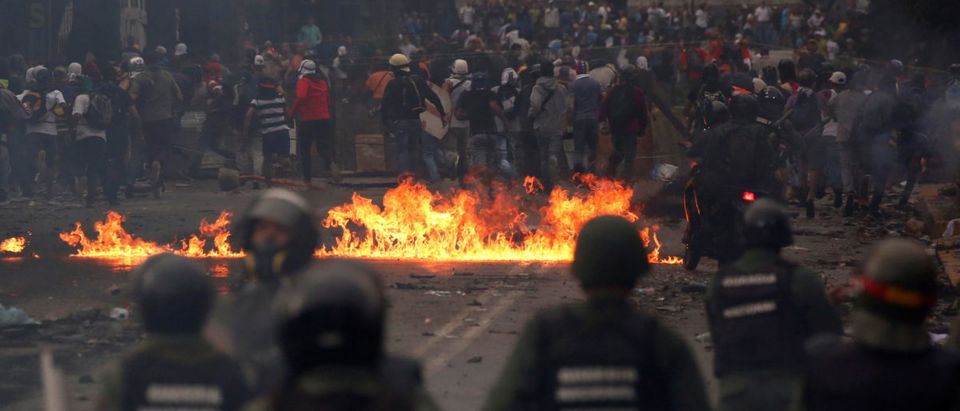Venezuelan dictator Nicolas Maduro is liquidating the country’s independent judiciary as well as replacing its popularly elected National Assembly, Venezuelan Supreme Court Justices Miguel Angel Martin and Ramsis Ghazzaoui reported to an audience at the non-partisan humanitarian watchdog group Freedom House in Washington, D.C. Thursday afternoon.
The two justices, soon to be joined by other judges in exile, plan to lobby the Trump administration this week, and meet with Venezeulans who have fled to the U.S. and other countries.
The two justices reported that Maduro has appointed 33 new judges to replace the existing judiciary that had opposed as unconstitutional his expansion of government power and executive authority. They also report that many have had their assets frozen and their family members harassed. In the past two years the Maduro regime has arrested many opposition political leaders, with the whereabouts of many unknown after they disappear. Citizens conducted massive anti-Maduro protests for over 4 months, with 100 civilians killed while protesting Maduro. In August elements of the Venezuelan military began to rebel, and attacked a military base.
Before Maduro’s dictatorship, Supreme Court Justices were appointed by the popularly elected National Assembly.
They were joined via Skype by Julio Borges, Deputy to the National Assembly, whose connection was intermittent, which Freedom House moderator Carlos Ponce attributed to deteriorating communications infrastructure in Venezuela.
As many as a million Venezuelans (population 31 million) have fled the country, according to Borges: 500,000 to Columbia, 200,000 to Chile, 200,000 to the U.S. (mainly Florida), 20,000 to the Dominican Republic. Three thousand a month were fleeing to Panama, which began requiring Visas for Venezuelans to enter the country.
The Venezuelans who remain behind are searching through trash in the streets for anything edible, and dying of curable and manageable diseases, Ghazzaoui charged, with, for example, no insulin available for diabetics. This despite millions in Euros in Germany and other countries banked by Maduro and other members of the ruling party, the profits from narcotics trade, according to Justice Martin, and with mineral rights companies now owned by military officers loyal to Maduro, said Ghazzaoui. Venezuela recently transferred control of its oil sales to Russian President Vladimir Putin, as a way of shielding revenues from bond holders it is defaulting on.
The judges in exile hope to lobby more countries to break diplomatic ties with Venezuela. They also hope to formulate a way to impose sanctions on and freeze the assets of members of the Maduro regime, without hurting already impoverished average Venezuelans. Finally they say they hope to organize a representative government in exile from the huge and growing Venezuelan refugee community, to help with the country’s eventual transition back to democracy.
Freedom House is an independent watchdog organization dedicated to the expansion of freedom and democracy around the world. It publishes two rankings of countries Freedom in the World 2017 and Freedom of the Press 2017. Venezuela dropped from “partially free” in the 2016 rankings to “not free” in 2017, joining Cuba, the only two countries ranked “not free” in the Western Hemisphere.












